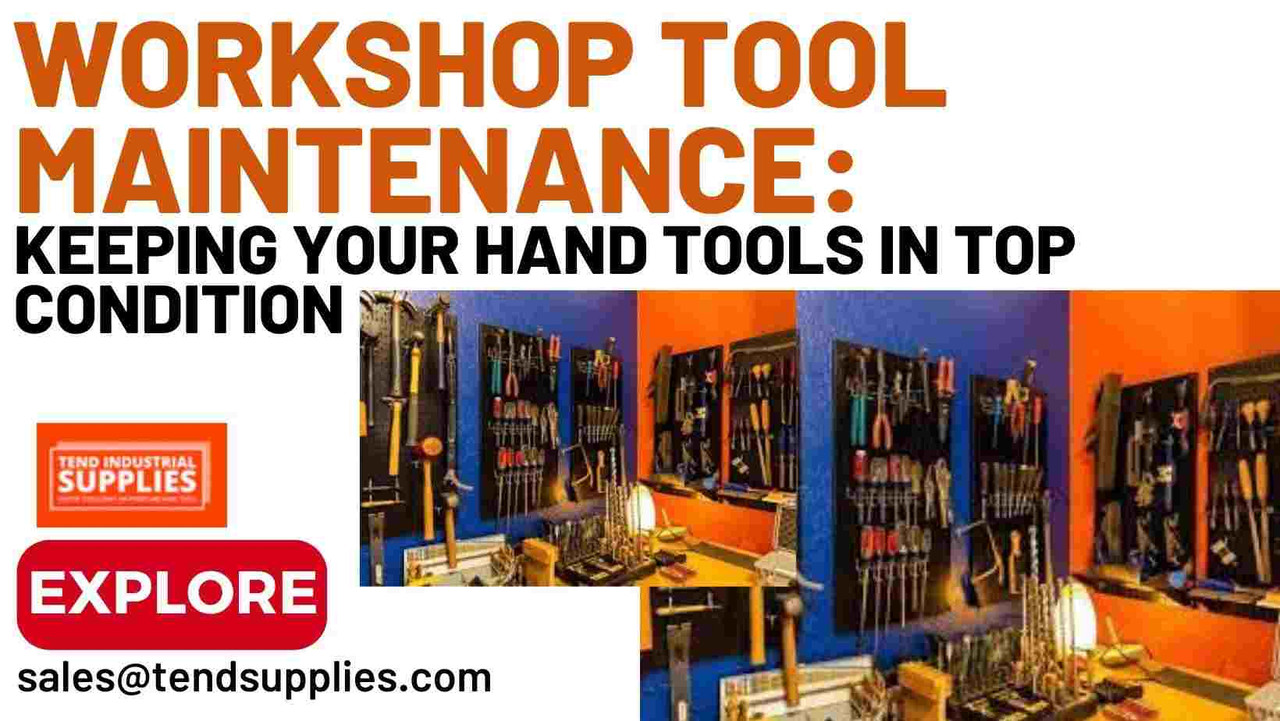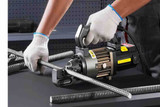Workshop Tool Maintenance: Keeping Your Hand Tools in Top Condition
Workshop Tool Maintenance
The workshop is a sanctuary of creativity and hard work for any craftsman or DIY enthusiast. The hand tools are central to this creative haven, which require regular maintenance to function at their best. Proper care of these tools extends their life and enhances their efficiency, ensuring that every project is completed with precision. In this article, we will explore key maintenance strategies that are essential for keeping your hand tools in top condition. Find the best specialty workshop tools and accessories for your workshop.
Understanding Your Tools
Hand tools such as hammers, screwdrivers, and pliers are the backbone of any workshop. Each tool, with its unique function, undergoes different types of wear and tear. A hammer, for instance, might face headwear and a loose handle, while screwdrivers can have worn tips, and pliers may develop joint stiffness. Regularly maintaining these tools is crucial to ensure they remain effective and safe. Discover a variety of hand tools on TendSupplies.com.
Cleaning and Inspection Routines
Proper cleaning is the first step in hand tool maintenance. Here’s how you can maintain different tools:
- Remove Dirt and Grime: Use a clean cloth to wipe down your tools after each use. For stubborn dirt, a mild detergent can be used.
- Check for Rust: Look for any signs of rust or corrosion, especially on metal parts.
- Inspect for Damage: Regularly check for any cracks, splinters, or other signs of wear.
A routine check-up not only keeps the tools clean but also helps in early identification of potential problems. Find quality cleaning and maintenance products.
Proper Storage Solutions
Proper storage of hand tools is crucial in preventing damage and loss:
- Toolboxes: A sturdy toolbox can protect tools from dust, moisture, and accidental drops.
- Racks and Wall-Mounted Systems: These are great for organizing tools and keeping them easily accessible.
Choosing the proper storage solution depends on the number and type of tools you have.
Handling and Usage Tips
Correct handling of tools is crucial in any workshop. Here are some tips to ensure you're using your tools correctly:
- Use Tools as Intended: Avoid using tools for purposes other than what they are designed for. This prevents damage and ensures safety.
- Proper Grip and Posture: Use the correct grip and maintain a balanced posture while using tools to avoid strain and injury.
- Stay Informed: Familiarize yourself with the manufacturer’s guidelines for each tool.
Using the right tool for the job not only makes your work easier but also extends the life of your tools. Learn more about this proper tool storage.
In conclusion, maintaining your hand tools is not just about keeping them clean and stored correctly; it's about preserving the integrity and functionality of every tool in your workshop. These maintenance strategies ensure that your hand tools remain reliable and ready for any project. For all your tool needs, from purchasing new equipment to finding the right maintenance supplies, visitTendSupplies.com. You'll find everything you need to keep your workshop running smoothly here.
Dealing with Rust and Corrosion
Rust and corrosion can significantly shorten the life of your tools. Here’s how to deal with them:
- Regular Cleaning: Keep your tools clean and dry. Wipe them down after each use.
- Rust Removal: Use a rust remover or baking soda and water mixture for minor rust. For more brutal rust, consider using steel wool or a wire brush.
- Prevention: Store tools in a dry place. Use rust-preventative sprays or oils to protect them.
For rust removal and protection products that help keep your tools in top condition.
Sharpening and Calibration
Keeping your cutting tools sharp and your precision tools calibrated is essential:
- Sharpening: Use a sharpening stone or tool for knives and chisels. Follow the correct angle and technique for effective sharpening.
- Calibration: Precision tools like calipers should be calibrated regularly to ensure accuracy. Refer to the tool’s manual for specific calibration instructions.
Explore our tools and services at TendSupplies.com for your sharpening and calibration needs.
Conclusion
Regular maintenance is the key to extending the life and performance of your hand tools. Simple routines like cleaning, proper storage, and correct usage can lead to long-term benefits for your workshop. By investing a little time and effort into maintaining your tools, you ensure their functionality and reliability for years.
Don’t let your tools fall into disrepair. Implement these maintenance strategies to keep them in top condition. For all your tool needs, from new purchases to maintenance supplies, visitTendSupplies.com. Explore our wide range of tools, maintenance products, and storage solutions to determine your workshop needs precisely.
For more detailed maintenance guides, how-to articles, and FAQs, check out our Learning Center at TendSupplies.com. Stay equipped and informed with Tend Industrial Supplies.









